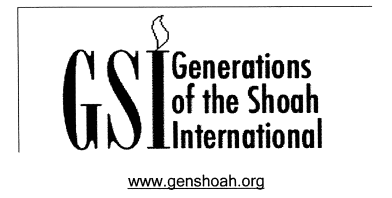On the 29th of November 2016, State representative Frank Hornstein (DFL) organized a public lecture through the Sabo Center for Democracy and Citizenship at Augsburg College entitled The Use of Holocaust and Nazi Analogies in American Politics. The speaker for the event, Professor Gavriel Rosenfeld (Fairfield University), was interviewed for this month’s scholar spotlight.
Archive: Dec 2016
December 9th is the International Day of Commemoration and Dignity of the Victims of the Crime of Genocide. It commemorates the adoption by the United Nations of the Convention on the Prevention and Punishment of the Crime of Genocide in 1948. On this 68th Anniversary of the Genocide Convention, it is a stark reminder that the world still lags behind the ambitious goals envisaged by not only Raphael Lemkin but also the signatories to the convention. Over the past few months, the United Nation’s Office of the Special Adviser on the Prevention of Genocide has issued warnings on the current state of affairs in South Sudan, Aleppo, Syria and Northern Rakhine State, Myanmar. In a rather ironic twist, we have grown accustomed to debating whether a conflict is a genocide or not, rather than working together to stop genocides from unfolding. Despite clear and early warnings about the possibility of a genocide unfolding, there is still a yawning gap between how events unfold, and our response to ending/curbing human suffering due to conflict.
Below is an open letter sent to President-elect Donald Trump by Generations of the Shoah International.

November 30, 2016
Donald J. Trump
President-elect of the United States
Trump Tower
725 Fifth Avenue
New York, NY 10022
Dear President-elect Trump:
In your election night speech, you said, “Now it’s time for America to bind the wounds of division. It is time for us to come together as one united people.” Instead, those divisions are escalating. When members of the alt-right meet in Washington, DC and question if Jews are really people, it is time for moral leadership to put a stop to hate speech, to anti-Semitism, to racism.
After the arrival of thousands of U.S. veterans, the long-standing Dakota Access Pipeline protests culminated in a small victory on Sunday when President Obama ordered the Army Corps of Engineers halt work on the pipeline. Victories like the one on Sunday and the President’s previous order in September have been overlooked, though. The BBC has called the protests the largest gathering of Native Americans in a century; why then do they feel so invisible? What accounts for the lack of media coverage at Standing Rock?
In October, the Daily Intelligencer interviewed Amy Goodman, host of the independent news site Democracy Now!, speculating how it is possible that “in this oversaturated age for a mass-protest movement to fly under the radar” on “the battle over the building of the $3.8 billion Dakota Access pipeline,” and Goodman suggested a larger, systemic problem:
“I dare say the lack of coverage may be because this is a largely Native American resistance and protest. This is an under-covered population generally.”
December 9th is the International Day of Commemoration and Dignity of the Victims of the Crime of Genocide. It commemorates the adoption by the United Nations of the Convention on the Prevention and Punishment of the Crime of Genocide in 1948. On this 68th Anniversary of the Genocide Convention, it is a stark reminder that the world still lags behind the ambitious goals envisaged by not only Raphael Lemkin but also the signatories to the convention. Over the past few months, the United Nation’s Office of the Special Adviser on the Prevention of Genocide has issued warnings on the current state of affairs in South Sudan, Aleppo, Syria and Northern Rakhine State, Myanmar. In a rather ironic twist, we have grown accustomed to debating whether a conflict is a genocide or not, rather than working together to stop genocides from unfolding. Despite clear and early warnings about the possibility of a genocide unfolding, there is still a yawning gap between how events unfold, and our response to ending/curbing human suffering due to conflict.
Below is an open letter sent to President-elect Donald Trump by Generations of the Shoah International.

November 30, 2016
Donald J. Trump
President-elect of the United States
Trump Tower
725 Fifth Avenue
New York, NY 10022
Dear President-elect Trump:
In your election night speech, you said, “Now it’s time for America to bind the wounds of division. It is time for us to come together as one united people.” Instead, those divisions are escalating. When members of the alt-right meet in Washington, DC and question if Jews are really people, it is time for moral leadership to put a stop to hate speech, to anti-Semitism, to racism.
After the arrival of thousands of U.S. veterans, the long-standing Dakota Access Pipeline protests culminated in a small victory on Sunday when President Obama ordered the Army Corps of Engineers halt work on the pipeline. Victories like the one on Sunday and the President’s previous order in September have been overlooked, though. The BBC has called the protests the largest gathering of Native Americans in a century; why then do they feel so invisible? What accounts for the lack of media coverage at Standing Rock?
In October, the Daily Intelligencer interviewed Amy Goodman, host of the independent news site Democracy Now!, speculating how it is possible that “in this oversaturated age for a mass-protest movement to fly under the radar” on “the battle over the building of the $3.8 billion Dakota Access pipeline,” and Goodman suggested a larger, systemic problem:
“I dare say the lack of coverage may be because this is a largely Native American resistance and protest. This is an under-covered population generally.”
